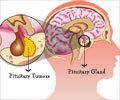- L-Arginine - (https://medlineplus.gov/druginfo/natural/875.html )
- Life-threatening hyperkalemia induced by arginine - (https://pubmed.ncbi.nlm.nih.gov/717931/ )
- Impact of oral L-arginine supplementation on blood pressure dynamics in children with severe sickle cell vaso-occlusive crisis - (https://www.ncbi.nlm.nih.gov/pmc/articles/PMC8012291/ )
- The Association of Dietary l-Arginine Intake and Serum Nitric Oxide Metabolites in Adults: A Population-Based Study - (https://www.ncbi.nlm.nih.gov/pmc/articles/PMC4882723/ )
Arginine Medication Information
Discover comprehensive details about Arginine, including its pronunciation, uses, dosage instructions, indications, and guidelines on how and when to take it or avoid it.
The updated prescription information covers potential side effects, precautions, warnings, and storage recommendations.
Additionally, explore the Arginine brands available in India and internationally, along with pricing information. For personalized advice, consult your healthcare provider.
Generic Name : Arginine Pronunciation : AR-ji-neenBrand Names or Trade Names of Arginine
India :
Overview of Arginine
• Arginine is also known as L-arginine, it is an amino acid that is formed in the body.Why is Arginine Prescribed? (Indications)
Arginine, also known as L-arginine, is an amino acid that is a building block of proteins.Arginine has been tried out in a number of conditions that include angina, erectile dysfunction in males, high blood pressure, necrotizing enterocolitis in premature infants, prevention of nitrate tolerance, poor blood supply to the legs, and to improve recovery after surgery.
It is also used as a diagnostic aid to check pituitary gland function.
When should Arginine not be taken? (Contraindications)
• Arginine is contraindicated if the patient is allergic to it.What is the dosage of Arginine?
• The dosage of arginine depends on the condition it is used for. The oral dose is usually around 3 to 6 g once to three times a day.• The intravenous dose for peripheral artery disease affecting the leg is 6 g for up to 6 weeks.
• It is also available as a cream to be applied locally.
How should Arginine be taken?
• The oral form is available as a capsule and powder in a sachet for oral solution.What are the warnings and precautions for Arginine?
• Arginine should be avoided or caution is necessary if the patient suffers from cirrhosis of the liver, guanidinoacetate methyltransferase deficiency, herpes, low blood pressure, recent heart attack, kidney disease, diabetes or prior to surgery.What are the side effects of Arginine?
Cardiovascular: Flushing, low blood pressureCentral nervous system: Headache
Gastrointestinal: Nausea, vomiting, diarrhea, abdominal pain, bloating
Others: Increased uric acid, blood abnormalities, allergic reaction
What are the other precautions for Arginine?
• Do not over dose the drug• Women should inform their doctor who prescribes the medication if they are pregnant or breastfeeding, or planning a pregnancy
What are the Drug Interactions of Arginine?
• Arginine could interact with birth control and hormone replacement medicines as estrogens increase the effects of arginine on growth hormone, glucagon and insulin, while progestins in the birth control pills decrease the response of growth hormone to arginine.• Arginine increases the risk of bleeding when used in combination with blood thinners like warfarin, heparin and clopidogrel.
• Arginine can result in low blood pressure when given with antihypertensive drugs or other blood pressure-lowering medications.
• Arginine could produce excessive fall in blood glucose in patients with diabetes.
• The potassium levels in the blood may increase if arginine is taken along with diuretics like thiazide diuretics, spironolactone and triamterene.













